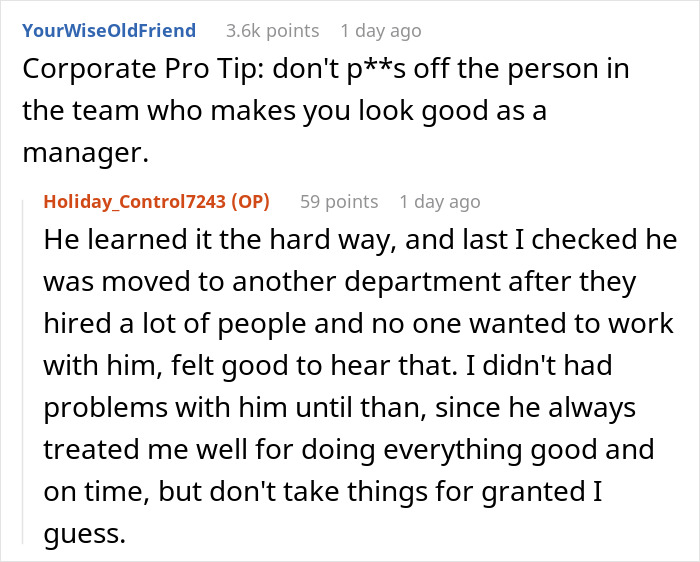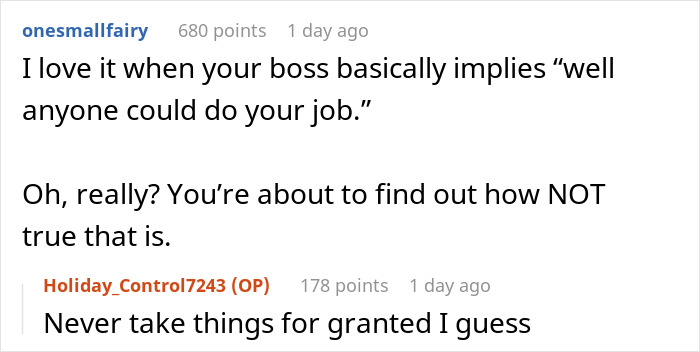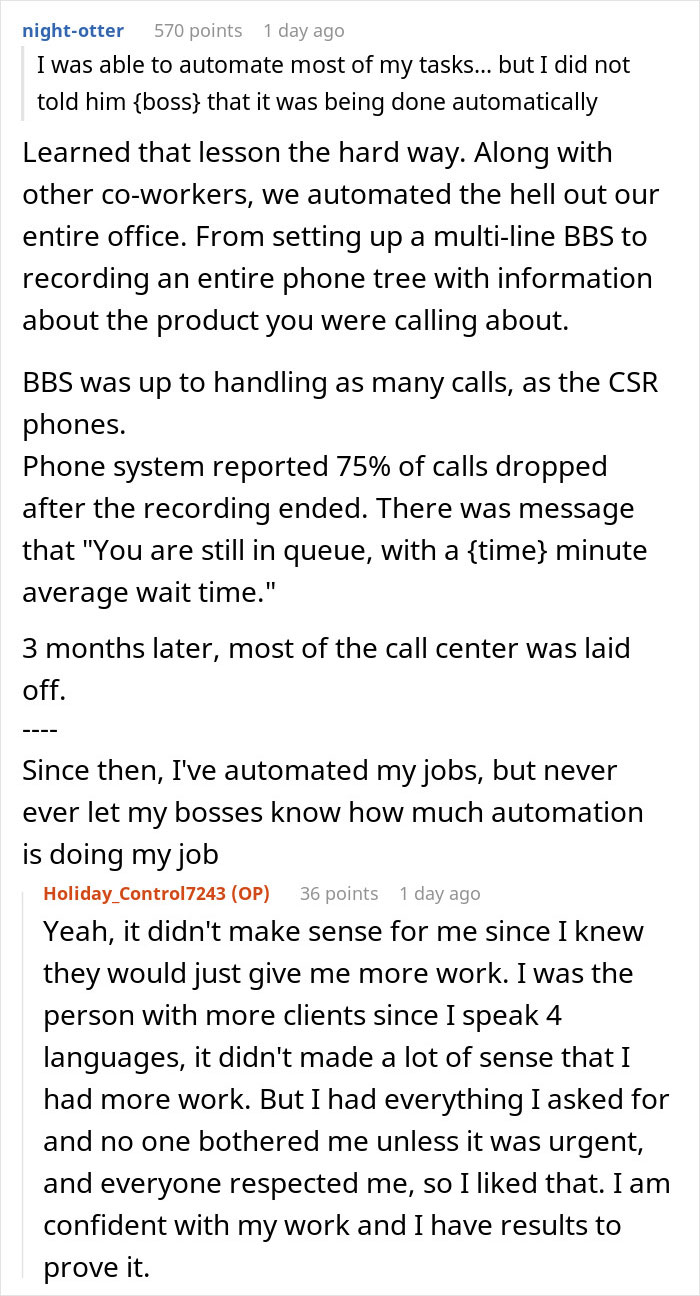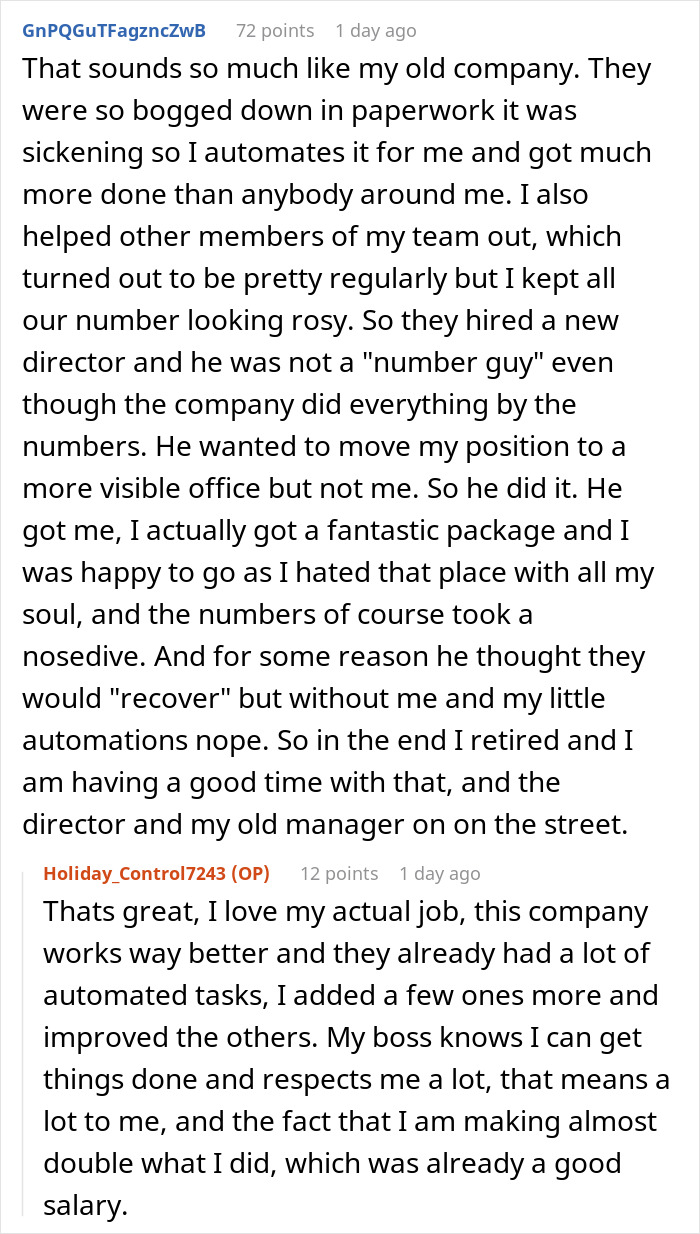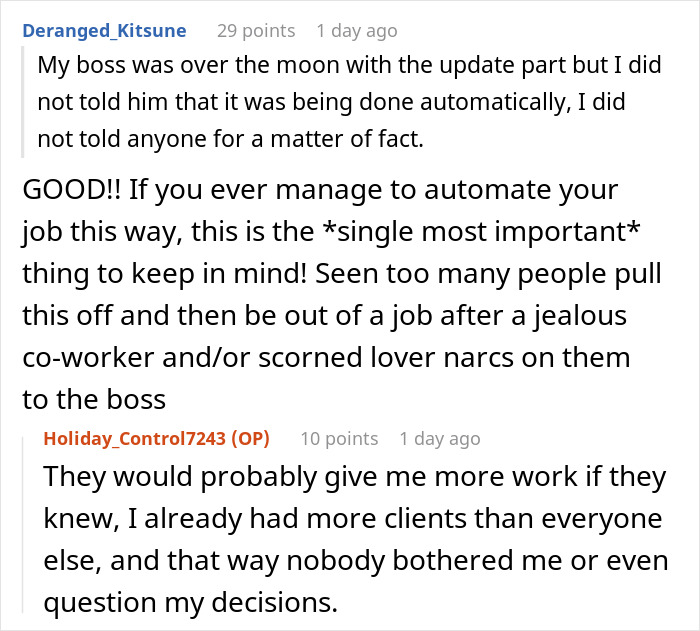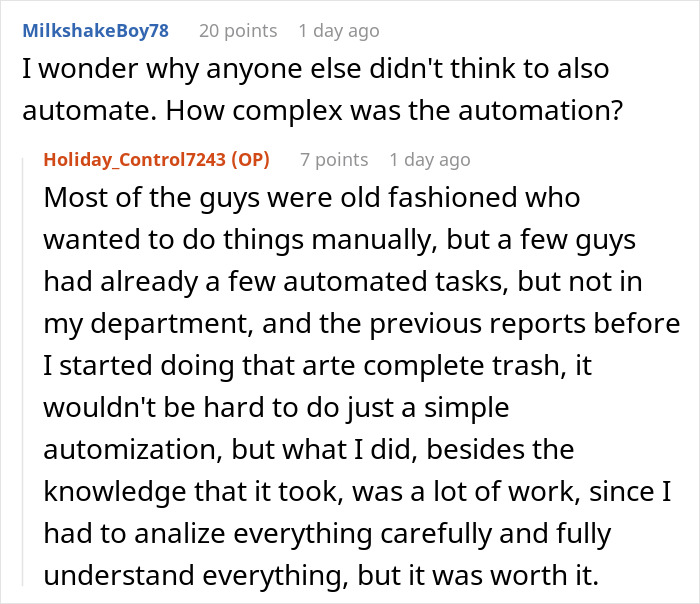A Reddit user, Holiday_Control7243, shared a story about working at a big accounting firm after college. They were an exemplary employee, handling important tasks, gaining trust, and boosting sales. However, when they went on vacation, things went downhill. The Redditor turned off their automated tasks, which were crucial for updating reports at the end of the month. As a result, five people had to take over their tasks, causing delays and incomplete reports.
When the Redditor returned, their boss told them they could no longer take time off at the end of the month. In response, the employee decided to “maliciously comply,” likely to teach the boss a lesson about not valuing their employees’ need for time off.
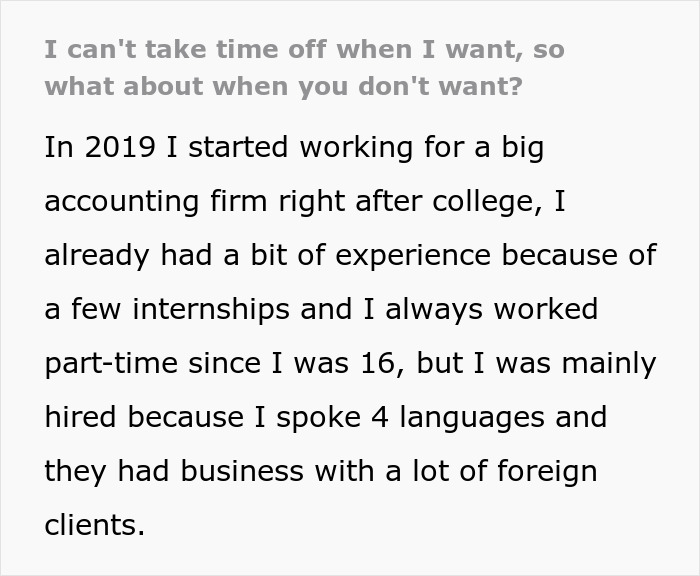
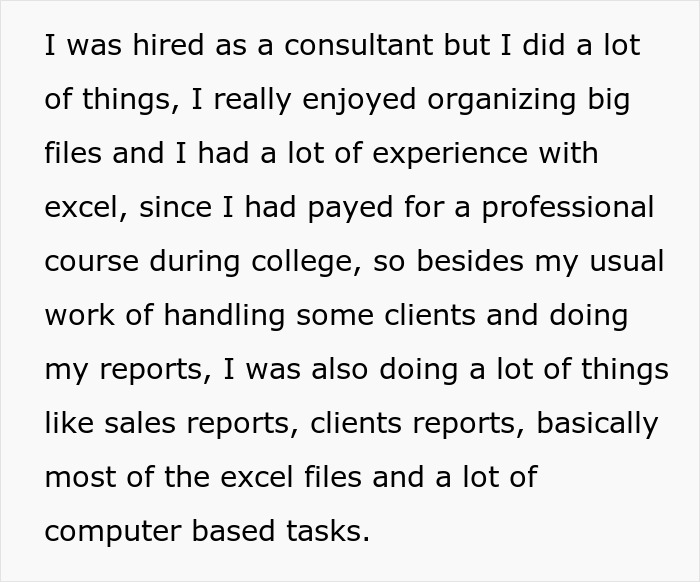
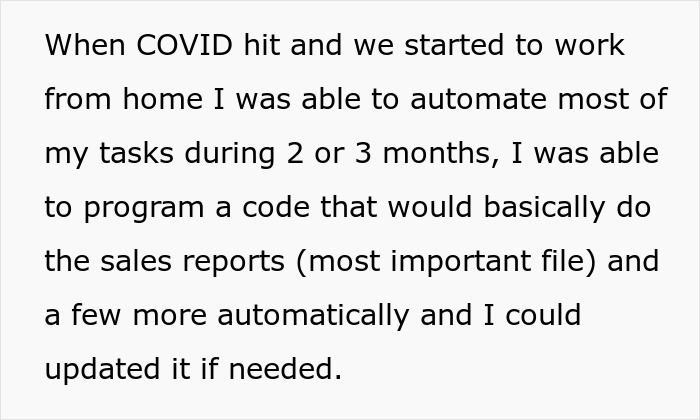
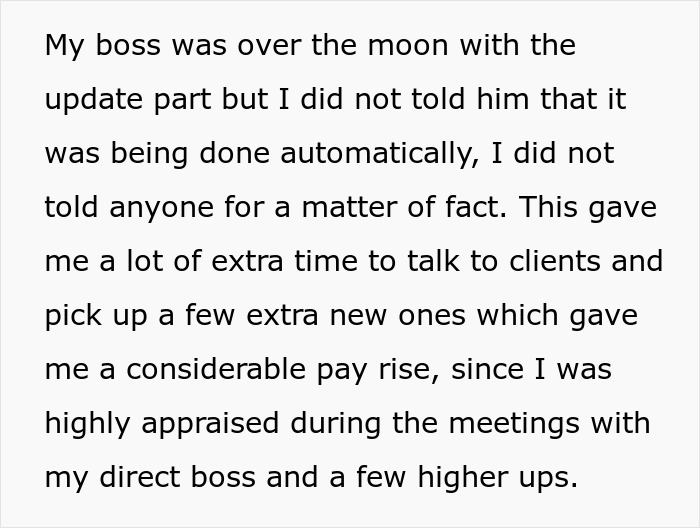
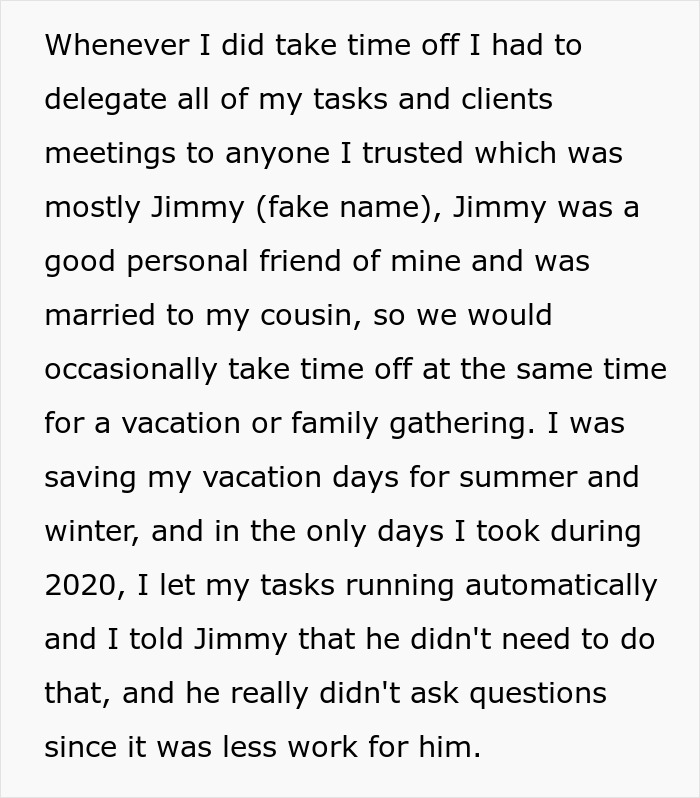
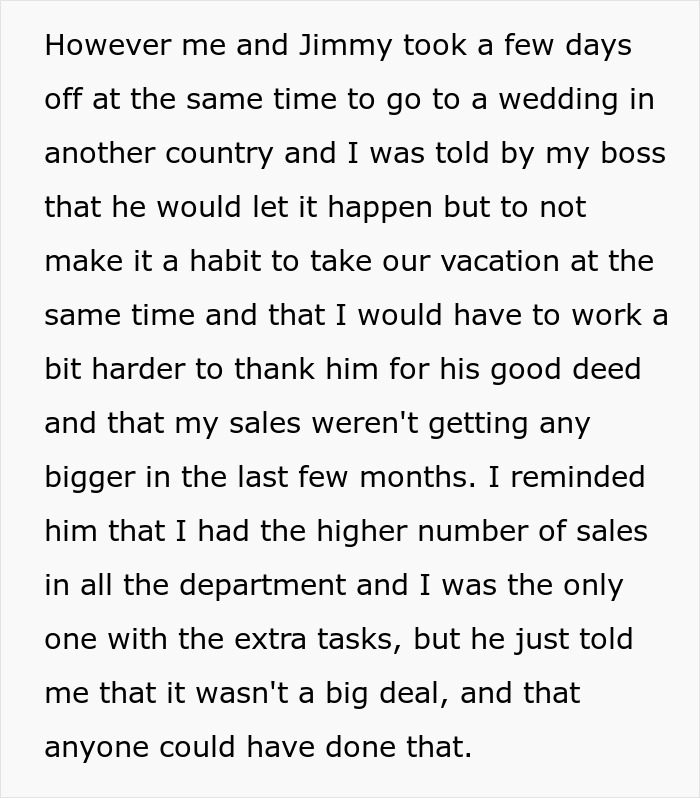
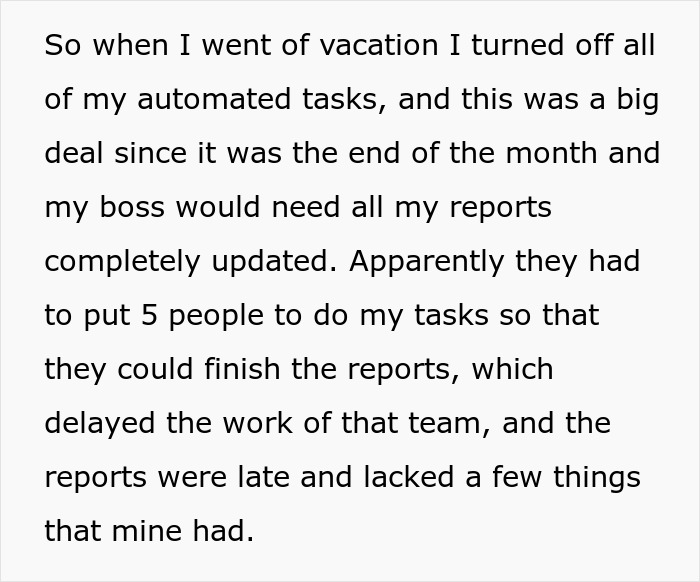
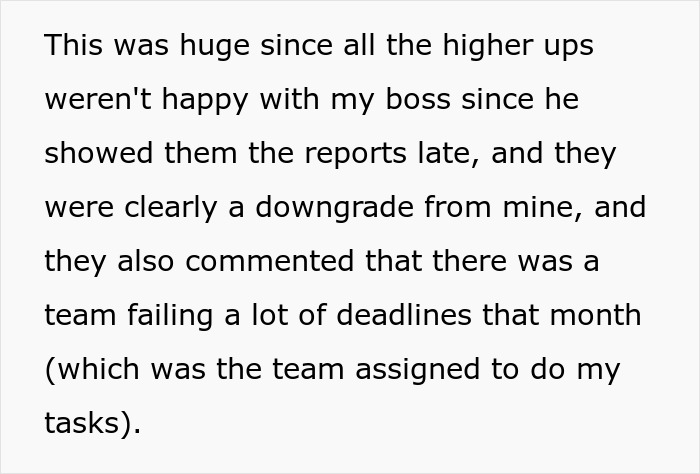
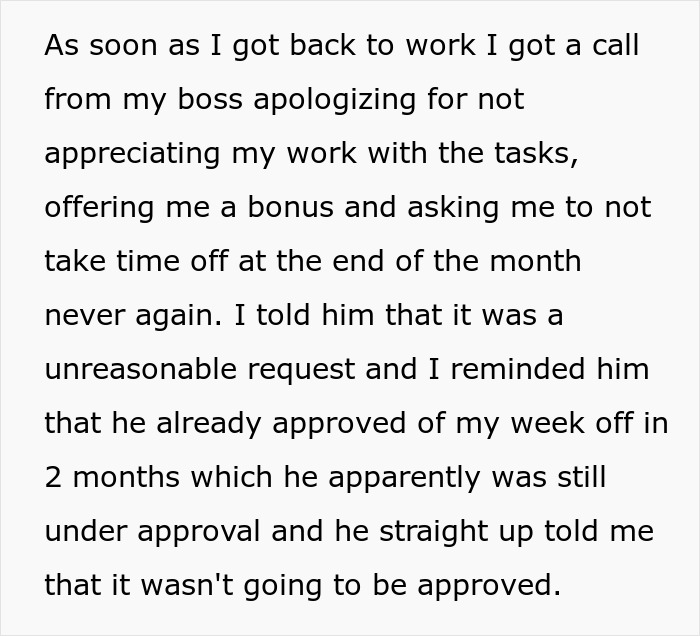
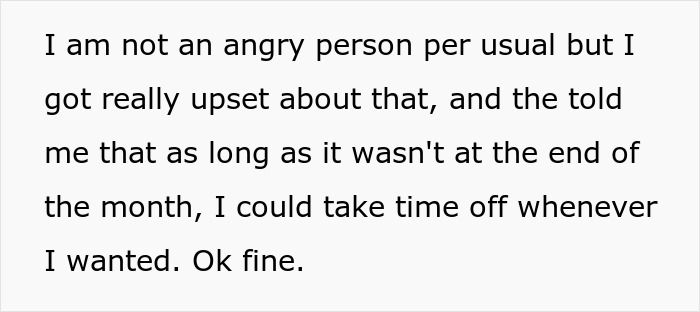
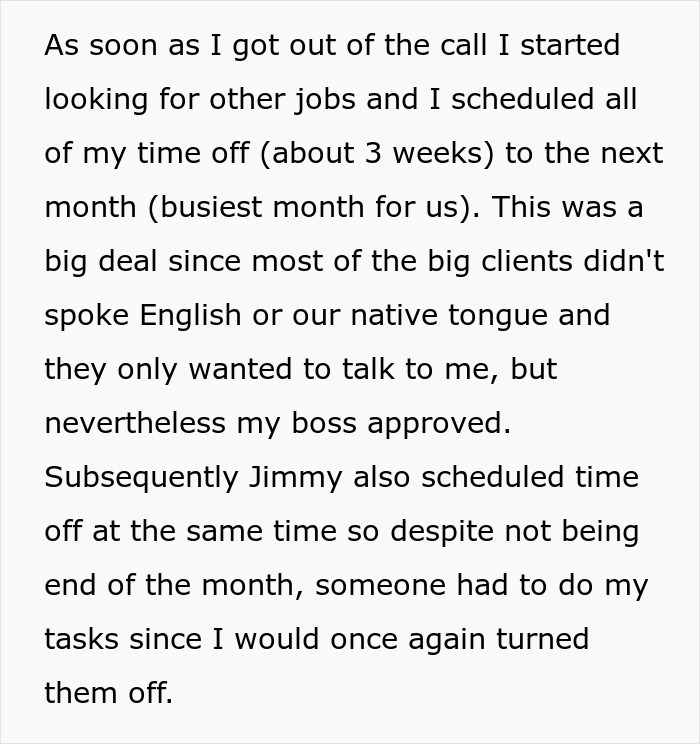
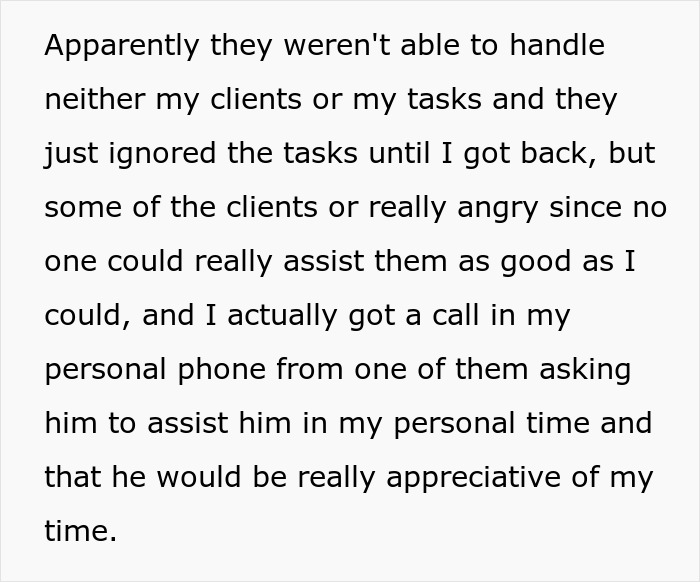
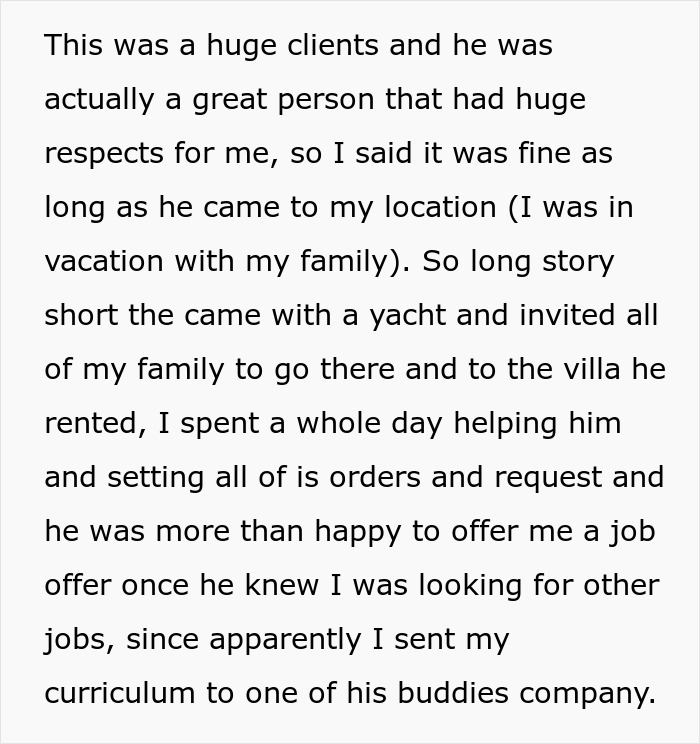
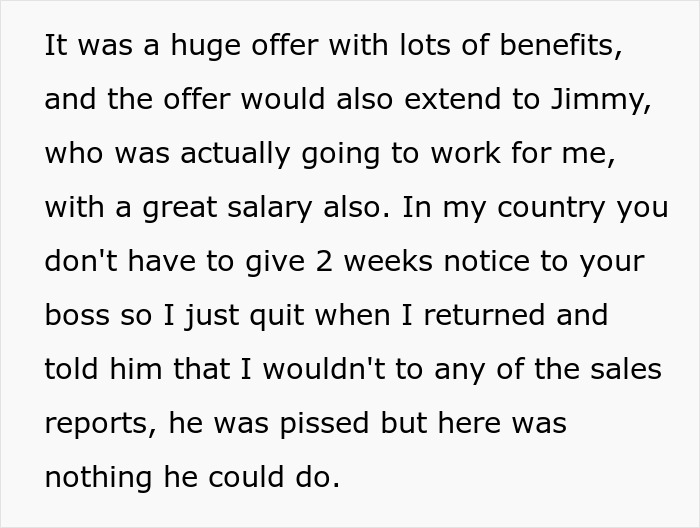
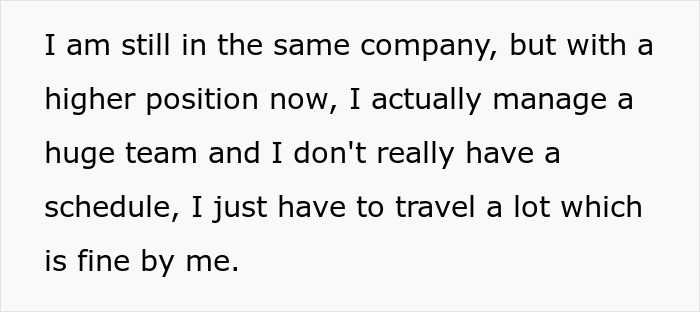
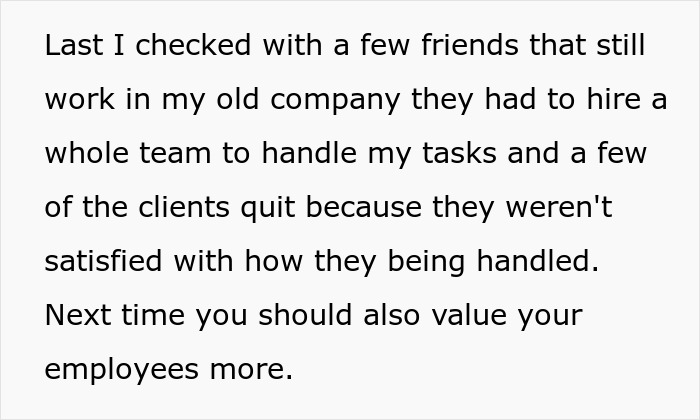
We live in a society where employers often expect their workers to exceed the responsibilities outlined in their job contracts. It’s no surprise that many overworked and burnt-out employees either quit or engage in quiet quitting, especially given the rising cost of living and inflation.
“We do need to ask some questions over who demands the ‘overwork’ in the first place,” Dr. Audrey Tang, a chartered psychologist and author of several books, including Be A Great Manager Now, The Leader’s Guide to Mindfulness, and The Leader’s Guide to Resilience, told Bored Panda.
She explains that “someone who stays up all night to finish a report (without being asked to) and produces something which is accepted as a similarly high standard as the person who hammered it out in an hour is going to feel far more exhausted and likely less appreciated than said ‘hammerer’.” Dr. Tang emphasized that this doesn’t mean the quality of the product is different.
Dr. Tang also pointed out another key factor that contributes to “quiet quitting” and burnout: jobs that require “emotional labor.”
“Emotional labor was defined by Arlie Russell Hochschild in 1983 as a socially constructed behavior where a professional manages his or her ‘…feeling to create a publicly observable facial and bodily display…’ Hochschild proposed, those ‘norms’ are defined by ‘display rules’ that performers of emotional labor might share (eg. a nurse’s ‘display rule’ may be presenting as an approachable and sympathetic person – even if s/he’s just been shouted at by the person s/he’s trying to help).”
The author provided additional insights into the situation in response to these comments.
